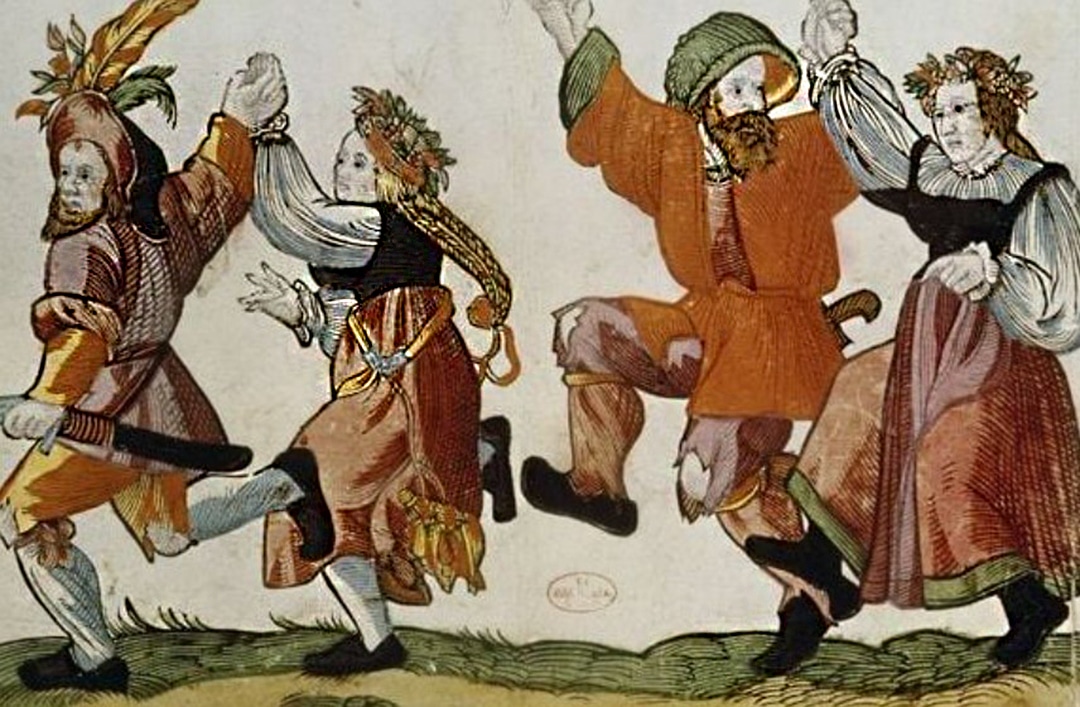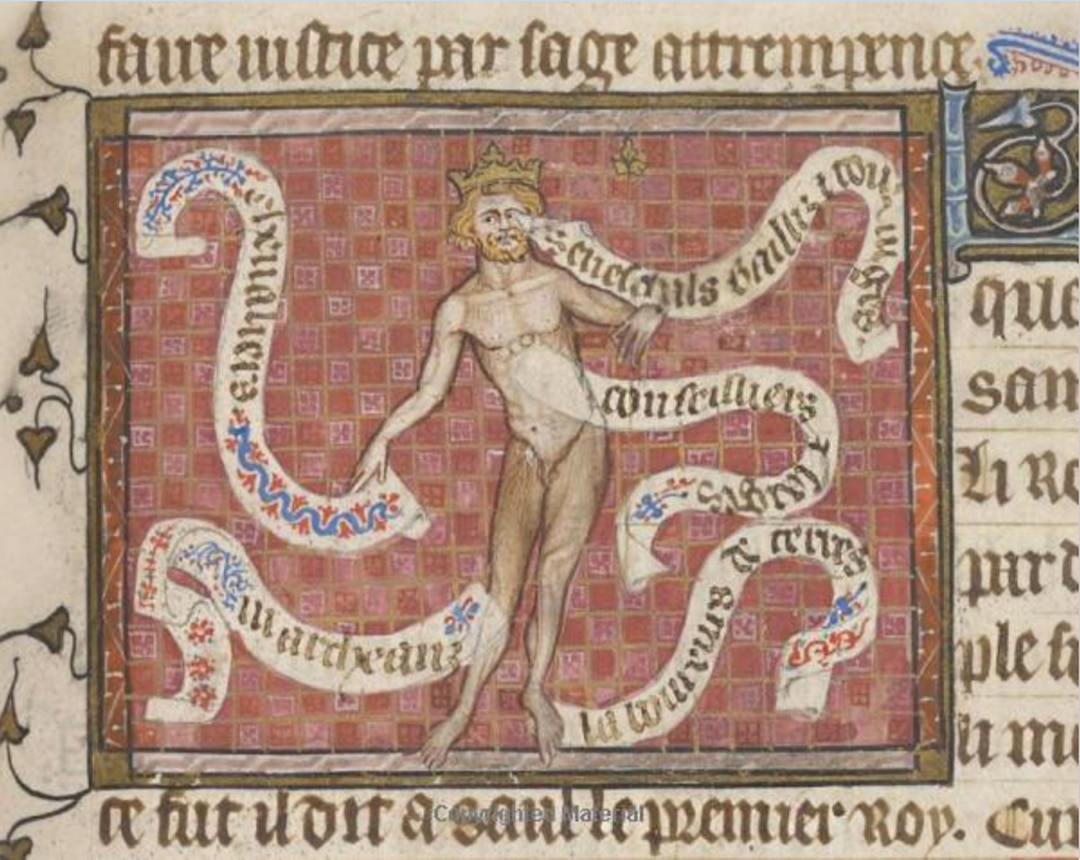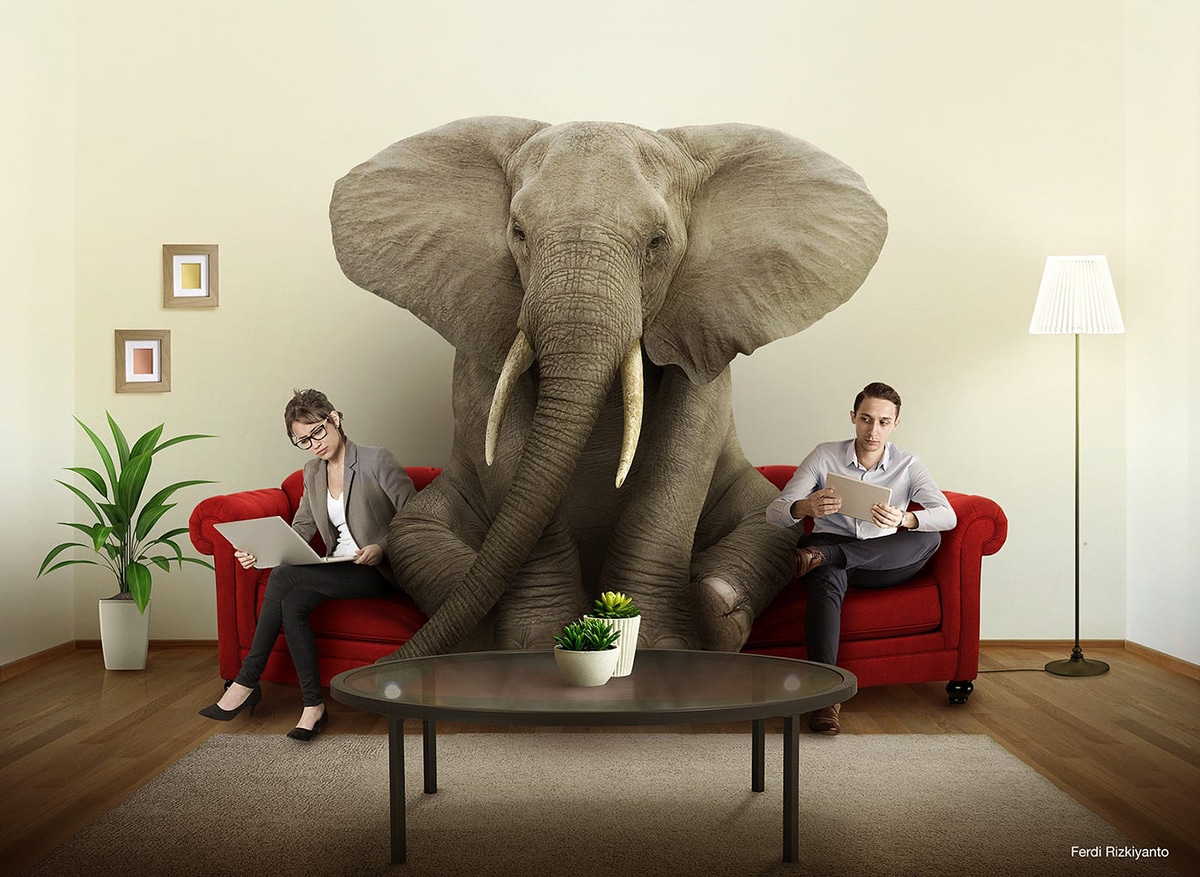

The Politics of Friendship (Chrono-Politics, Part 6)
by W.D. James | Aug 14, 2024
To see a World in a Grain of Sand
And a Heaven in a Wild Flower
Hold Infinity in the palm of your hand
And Eternity in an hour
– William Blake, Auguries of Innocence
Can we justify being inactive? Byung-Chul Han, in his Vita Contemplativa, speaks of a ‘politics of inactivity,’ a ‘utopia of inactivity,’ and an ‘ethics of inactivity.’ One gets the sense that he thinks this is important. Behind all of these is a particular mode of attentiveness he wishes to draw our attention to. Further, it is from within this basis of attentiveness that we can discern a particularly poignant political vision.
Inactivity
What is inactivity? Discussing “ceremonious inactivity,” Han can see taking a leisurely walk as a luxury because it is not done toward a particular end. “This ‘to-no-end,’ this freedom from purpose and usefulness, is the essential core of inactivity, he writes. “It is the basic formula for happiness.”i What is key in inactivity is that human will is allowed to recede into the background. Activity is centered on the will: the doing to a purpose set by the will. Is this not correct? Happiness seems like one of those things that if you are seeking it you will not find it, but at other times it finds you. If you take that leisurely walk thinking ‘I’m doing this so I can be happy,’ won’t you be so focused on achieving happiness that it eludes you, while if you just allow yourself the walk, happiness and contentment may well accompany it?

The antithesis to inactivity is the system of all-activity, capitalism. According to Han, “Capitalism is the pure form of activity. It is the transcendence that takes hold of the immanence of life and exploits it completely. From life, it separates bare life, life that works. The human being is degraded into an animal laborans. Freedom is exploited too. According to Marx, free competition is nothing but ‘the relation of capital to itself as another capital.’ While we compete freely with each other, capital multiplies. Only capital is truly free…”.ii Ceasing from doing or doing to no end cannot justify themselves within the market. Don’t they call it ‘business’ just because it is ‘busy-ness’? The logic of capitalism mobilizes everything into its service. Its frenzied getting has no inherent stopping point.
To recapture spaces in time for freedom, for happiness, for inactivity, is a political activity. “The reconciliation between humans and nature, “ Han expounds, “is the final purpose of a politics of inactivity.”iii In these moments, reflection becomes possible. “[R]eflection leads us back to where we always already are. It opens up for us a being-there (Da-Sein) that precedes all doing, all action.”iv As we shall see, this point of repose and reflection is the proper ground from which our doing may issue forth.
This space for attentiveness, for what is always already there, is surely under assault. Without it though we never actually get around to attending to things. Han notes that if revolution is inconceivable to us, it is probably because we are never afforded the time to think.
Religion and freedom
For Han, religion and attention are fundamentally bound up with one another. In fact, religion is absolutely dependent on attention. “Today’s crisis of religion cannot be explained simply with reference to the fact that we have lost all faith in God or become suspicious of certain religious doctrines,” Han observes. He goes on, “The crisis of religion is a crisis of attention.”v That is, it is not primarily a matter of how we feel about certain propositions: God exists, God does not exist; it is about how we exist in the world.
He approvingly quotes the 18th century theologian Friedrich Schleiermacher on the essence of religion, “’It is neither thinking nor acting, but intuition and feeling. It will regard the Universe as it is. It is reverent attention and submission, in child-like passivity, to be stirred and filled by the Universe.’”vi To ‘listen’, he states, is “the verb of religion.”vii This listening requires an inactivity in which the ego has subsided and falls silent. Whereas the achievement-subject (discussed in essay four) produces themselves, the attentive person is capable of losing themselves which, paradoxically, opens up the possibility of actual fulfillment and self-realization.

This is an essentially Romantic conception of religion (and nature) and Han does not bat an eyelash at taking it up. Following the German Romantics, Han sees direct political implications of this conception of religion. It allows him to understand freedom not as the self-assertion of the will, but as the oblivion of the will: less a ‘free to’ than a ‘free from.’ Quoting Schleiermacher (pictured) again, he observes that, “Religion begins to breathe where freedom itself has already become nature again.”viii So, freedom is not primarily of our external existence, but something that accompanies our attentive attunement to the world, to nature. Only when freed from the in-order-to are we free to just be.
What is going on here? Most religions teach the need to overcome or surpass the individual ego. Han is trying to show us why that is so. The ego, when acting, sets upon nature with its own purposes. When thinking it apprehends nature in the same way. Only when we manage to attain a state of purposelessness, of ‘listening’ to nature (Schleiermacher’s ‘Universe’), may we genuinely connect with it. Further, in doing so, we discover the secret of true freedom. We speak of ‘losing ourselves’ in a natural activity, or in a daydream, or in a piece of music. We certainly don’t take that as a negative thing. To lose ourselves is to find ourselves more deeply.
He unashamedly identifies this true freedom with a utopian potentiality. It is a longing for beauty found in nature. “Romantic freedom,” he asserts, “is not based on wanting-oneself, or a will-to-self, but a being-with or shared willing…”.ix Quoting Martin Heidegger now, he explains: “Shared willing is rather a letting go and releasing oneself into being. Shared willing is a having to, but a having to… that stems from an open belonging to beyng [Heidegger’s unique spelling of ‘being’ in some contexts] and returns back into it. This belonging, however, is the innermost essence of freedom.”x
That is sounding rather mystical, but then again, religion does involve the mysterious. Han, in full Heideggerian mode, gives us a helpful elucidation. “Etymologically,” he elaborates, “the word ‘free’ means to be among friends. Both ‘freedom’ and ‘friend’ have the Indo-Germanic root ‘fri’, meaning ‘to love’. Freedom is friendliness.”xi I think that actually makes sense. When do we feel more free than when lost in the company of good friends? What is suggested though is this withness, this friendliness, can extend to our relationship to all of nature (which he quotes Novalis as calling “the poem of the godhead”). We do still have the idea, I think, that freedom comes from acting naturally. Certainly, though liberty from external restraint (‘negative liberty’) might be necessary, we have a qualitative sense of freedom as a positive good. As such, it must be associated with living as we ought.
Remember, as discussed in the previous essay, Han is quite interested in what has the power to form community. There it was ‘ritual.’ Here he states that “The goal [of shared willing] is a community of the living.”xii “Romanticizing the world,” he goes on, “means giving it back its magic, its mystery, even its dignity…. A Romanticized world would reveal the ‘Gemüt’, the heart and soul, the inside of the outside world from which we are estranged.”xiii He terms this position a “Romantic messianism”—the promise that we might actually be able to overcome our estrangement from nature and from our fellows. We also have the idea that for a relationship to become friendly, we have to act naturally. If you’re faking it or straining it, it won’t work. Friendliness, naturalness, and freedom all go hand-in-hand.

On this vision, an ‘ethos of friendliness’ is called for, in which “[h]uman beings are but fellow citizens in a republic of the living—of plants, animals, stones, clouds, and stars.”xiv That is naïve. Or as William Blake put it, that is ‘innocence.’ After all, Jesus taught that we must “become as little children.” A second innocence will not be identical to our first innocence, if we ever possessed it. It will also entail a significant risk. But as Han is demonstrating, a whole lot hangs in the balance of being able to accomplish that, at least to a degree.
Chrono-Politics
With Josef Pieper, Abraham Joshua Heschel, and Byung-Chul Han we have looked at how the modern world seeks to claim all of our time for the realm of useful activity. Pieper discussed that in terms of a universal proletarianization to create a world of ‘total work’. Han showed how contemporary neoliberal economics has found especially efficient means of production by developing the ‘achievement-subject’ who is auto-exploiting and how contemporary culture has no means of recognizing the value of anything that is not done for some immediate purpose.
Now, it is possible to take the thinkers we have looked at as being completely utopian in a negative sense. ‘Yes, sounds very good, let’s just never work again.’ That obviously isn’t going to happen and actually isn’t even desirable. None of them pointed to us somehow handing all of our time over to leisure, or festivity, or reflection. However, what they have all insisted upon is that we ought to recapture periods of time for this. We must liberate (some) of our time. No religion is based on the idea that the goal is to attain to a mystical ecstasy and just stay there (well, at least not in this world). What they do is counsel the setting aside of time to reattune ourselves to the world as it actually is, not how it is as viewed within the instrumental vision of the totalitarianism of the productive economy.
To touch back on the observations made in the first essay of this series on the institution of ‘clock time,’ I would like to quote George Woodcock in his essay “The Tyranny of the Clock.” Woodcock writes: “Now the movement of the clock sets the tempo of men’s lives. They become the servant of the concept of time which they themselves have made, and are held in fear, like Frankenstein by his own monster. In a sane and free society such an arbitrary domination of man’s functions by either clock or machine would obviously be out of the question. The domination of man by the creation of man is even more ridiculous than the domination of man by man. Mechanical time would be relegated to its true function of a means of reference and coordination, and men would return again to a balance view of life no longer dominated by the regulation and the worship of the clock, complete liberty implies freedom from the tyranny of abstraction as well as from the rule of men.”xv Such, in outline, are the external changes called for.

Our contemporary situation is not calling for just a little tweaking of things or even a superficial revolution. There are external things that need to be changed; many of them. However, if we only change the external things, the new things we bring about will start to look a lot like the old things after a while if we do not also change the deep things. Among the deep things is the whole way we exist in relation to the world. In the Islamic tradition, this dual task is referred to as the ‘lesser’ and the ‘greater’ ‘jihad.’ The lesser is the external struggle, the greater the internal struggle.
We need a political revolution that changes a good bit of how the externals are organized. However, we also need a revolution that reattunes us to nature, to being, in general. That is no simple task. It will entail recovering and giving expression to our full being which includes our ‘spiritual’ being. What the thinkers we have been looking at help us see is how important time is to that project. Be radically anti-modern: take a day off. We need this space within time though to recover our own full existence and our co-existence with the world and our fellows in natural freedom.
Further, there is very good news. While that revolution of the externals may be a ways off, the revolution of internals is at hand. Again, as Jesus said, the “Kingdom of God is within you.” That is, existing in a right way, attuned to our spiritual nature and the enchanted world around us, is at hand. It’s always available. That does not mean that it will be easy. It means that it is inherently possible though. We can progress in this regard. We can take a leisurely walk. We can contemplate that grain of sand with Blake. We can let our guard down and lose ourselves in an evening with friends. And, as Han has shown, from that basis of reflection and connection to the world, we can build friendships, with our fellows and with the rocks I suppose, which grow the ‘republic of the living.’

Subscribe to Philosopher’s Holler
i Byung-Chul Han, Vita Contemplativa: In Praise of Inactivity, translated by Daniel Steuer, Polity Press, 2024, p. 5.
ii Ibid, p. 20.
iii Ibid, p. 26.
iv Ibid, p. 33.
v Ibid, pp. 86-87.
vi Ibid, p. 87.
vii Ibid, p. 87.
viii Ibid, p. 90.
ix Ibid, p. 91.
x Ibid, pp. 91-92.
xi Ibid, p. 92.
xii Ibid, p. 95.
xiii Ibid, p. 95.
xiv Ibid, p. 99.
xv George Woodcock, “The Tyranny of Time,” 2009 (1944), The Anarchist Library, p. 4.





0 Comments